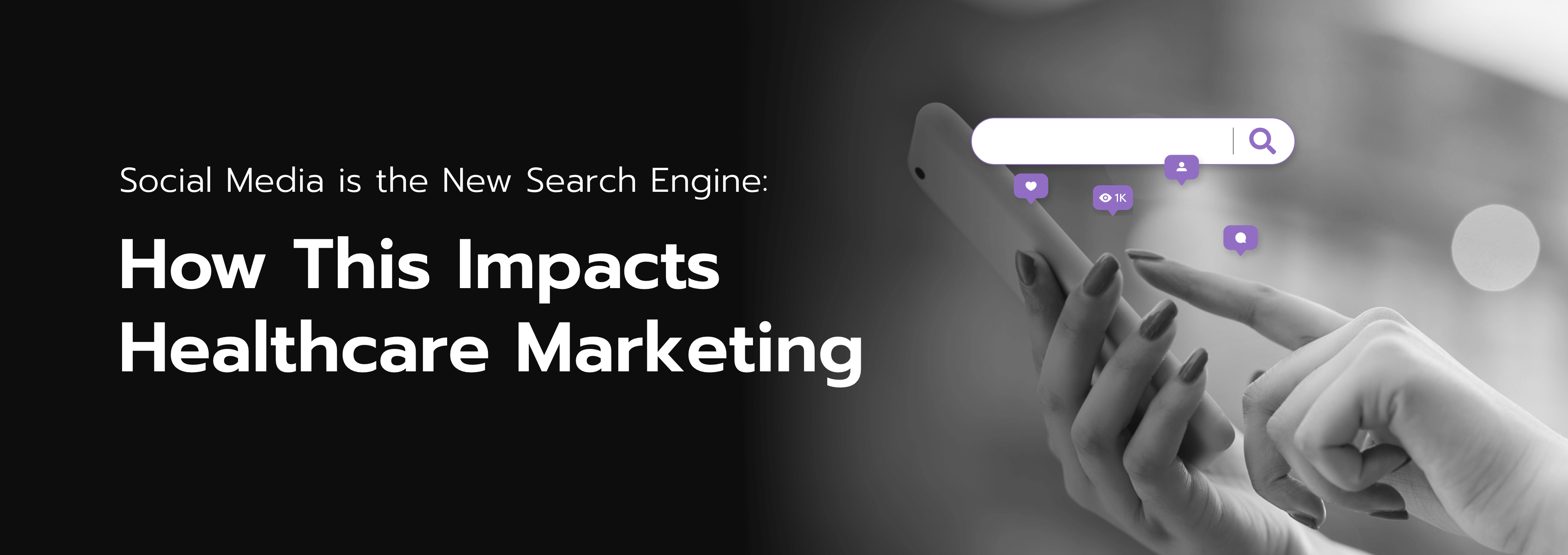Healthcare organizations have long grappled with navigating social media. Balancing sensitive topics, privacy concerns, and credibility makes it hard to find the right approach on these platforms.
To determine the optimal approach, consider your target market’s typical use of social media. Observe your followers’ engagement patterns based on the types of content you’re publishing, the frequency of posting, and the format of your content (short, snappy videos versus images versus longer form content, for example) and build content that garners high engagement.
Social media is the new search engine.
Social media visitors are increasingly using social media platforms as search engines, searching for answers to questions, terms, and topics similar to how they would engage on Google. This shift is likely driven by trust in peers, ease of use, content diversity, and real-time updates.

“A significant percentage of patients utilizing social media to search for and share health information, these platforms have gained prominence in various health topics, such as vaccines, drugs, smoking, noncommunicable diseases, pandemics, eating disorders, and medical treatments.”
– The Cureus Journal of Medical Science
For healthcare organizations, this trend necessitates an evolved approach to social media. Patients are actively seeking information, solutions, and resources. In response, healthcare organizations should tailor their social content to address these queries, whether through promotional content or thought leadership. Adaptation to this search-oriented behavior is crucial in optimizing social media strategies for healthcare.
How to adapt your healthcare social strategy:
Considering this shift in online behavior, here are some key aspects of social strategy that need adjustment to meet your followers’ expectations.
![]()
SEO and Discoverability
Creating quality content is valuable only when your audience can easily locate it. Enhance discoverability by leveraging SEO tools in social media content creation. Use tools to identify relevant keywords and topics and integrate them as appropriate.

Engagement and Interaction
Social media is an interactive tool. This offers significant advantages to healthcare companies that want to foster community, enhance credibility, and build stronger patient relationships. However, unlike search engines, social media is conversational. As your organization becomes a trusted source of information across these platforms, your social posts will likely elicit responses. Consequently, you must have a process in place for facilitating and addressing all feedback.
![]()
Understanding User Intent
One of the most important parts of navigating healthcare social media strategy is having a deep understanding of the target patient and how they engage with social platforms. The first step is to create patient personas and patient journeys. Then, gather data on their search behaviors, preferred platforms, timing of use, and the digital experiences they expect. Tailoring content to align with patients’ social media search patterns not only boosts engagement and credibility but also positions your organization as a valuable resource.
Bottom Line
The social media landscape is evolving. The use of social media as a search engine for healthcare information necessitates a strategic shift in how healthcare organizations approach their social media presence.
![]()
Ready to enhance your healthcare social media strategy for greater relevance and impact?
Collaborate with an experienced partner to elevate your online presence.

